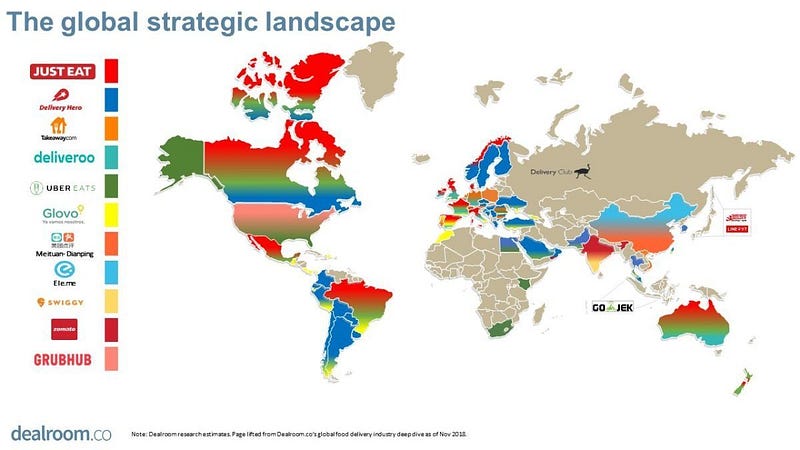An ambitious 27-year-old boss, an expanding army of IT engineers: in Barcelona, the start-up Glovo is continuing its international expansion beyond meal deliveries, despite harsh criticism of the working conditions of its deliverers.

In 2015, Oscar Pierre left his first job at Airbus in Toulouse, after only three months. “The industry is a bit slow … I was looking for a different rhythm”, the former aeronautical engineer explains to AFP.
Today, the young Spaniard manages 1,500 employees in 26 countries, half of them in Barcelona, his hometown, from brand-new offices worthy of Silicon Valley: poufs, table football, cafeteria decorated with Polaroid photos of young employees .
In the entrance are the yellow backpacks used by the 50,000 delivery people from Glovo, by bicycle or motorbike, to bring restaurant meals to homes in 288 cities but also baby diapers, medicines, flowers, etc.
Because Glovo, unlike its competitors Deliveroo or UberEats, is not limited to food. “Order what you want,” offers the application.
In 2019, Oscar Pierre garnered 250 million euros in turnover, an increase of more than 200% compared to 2018, the year when sales had already jumped by 350%.
Since 2015, Glovo has raised 460 million euros from investors attracted by the development of the sector, and has just gained the envied status of “unicorn” –that is, start-ups valued above a billion dollars .
“It makes you dizzy, a lot of pressure, but at the same time we take full advantage because we know that it is quite unique to experience this,” said the smiling son of a family of entrepreneurs.
He hopes to make profits “within 18 months” worldwide, even if the activity is already profitable in Spain, Italy and Portugal.
To grow, Glovo is setting up where competition is less intense than in Western Europe: Latin America, Kazakhstan, Ukraine, Morocco, Ivory Coast, etc.

– Optimized delivery –
Another challenge: optimizing delivery times, using algorithms crafted by a hundred international engineers. Three hundred additional hires are planned for 2020.
“We must choose an artificial intelligence model capable of estimating the time to prepare an order, to ask the delivery person to arrive on the scene practically when it is ready”, because any waiting time for the courier is a waste of money, says Mustafa Sezgin, the head of the IT division.
Meals provide three-quarters of the turnover, but “we like to think that food is the start of something much bigger”, like at Amazon, which started with books, says Pierre, admirer of Jeff Bezos.
Glovo already has seven “dark supermarkets”, warehouses filled with groceries only for delivery, and plans to open around 100 in two years. Objective: ensure deliveries in 15 minutes.
The application could ultimately make it possible to book restaurants and cinemas, and offer cleaning or home repairs.
Read also: Learning From Glovo, The Delivery Startup That Is Beating Uber In Big Markets
Trial
But more than these projects, it is the deliverers who have made the headlines in Spain in recent months, with several strikes denouncing a daily work pressure and insufficient working hours to obtain a decent income.
Twenty-one of them took Glovo to court, accusing him of treating them as “bogus self-employed”, subject to the same constraints as employees but without the fringe benefits from which Glovo benefits.
Courts have ruled eleven times over the deliverers and ten times over at Glovo, according to the company. Spanish Social Security is asking him for unpaid contributions for hundreds of delivery men.
For Oscar Pierre, the problem is not to know “if they are employed or independent”. “It is a new paradigm” for which it is necessary to “create a new regulation” of the sector, he says, suggesting to put in place additional social cover paid by the company.
It highlights the “flexibility” offered to couriers, 60% of whom work part-time. Would they like to work more? “I do not have this information,” he admits, confused by this question.
Affirming anxious to increase the income of its deliverers, Glovo says is working to improve the application so that they can make three deliveries per hour, against two currently. “With technology, it’s possible,” says Oscar Pierre.
Charles Rapulu Udoh

Charles Rapulu Udoh is a Lagos-based lawyer who has advised startups across Africa on issues such as startup funding (Venture Capital, Debt financing, private equity, angel investing etc), taxation, strategies, etc. He also has special focus on the protection of business or brands’ intellectual property rights ( such as trademark, patent or design) across Africa and other foreign jurisdictions.
He is well versed on issues of ESG (sustainability), media and entertainment law, corporate finance and governance.
He is also an award winning writer.
He could be contacted at udohrapulu@gmail.com
